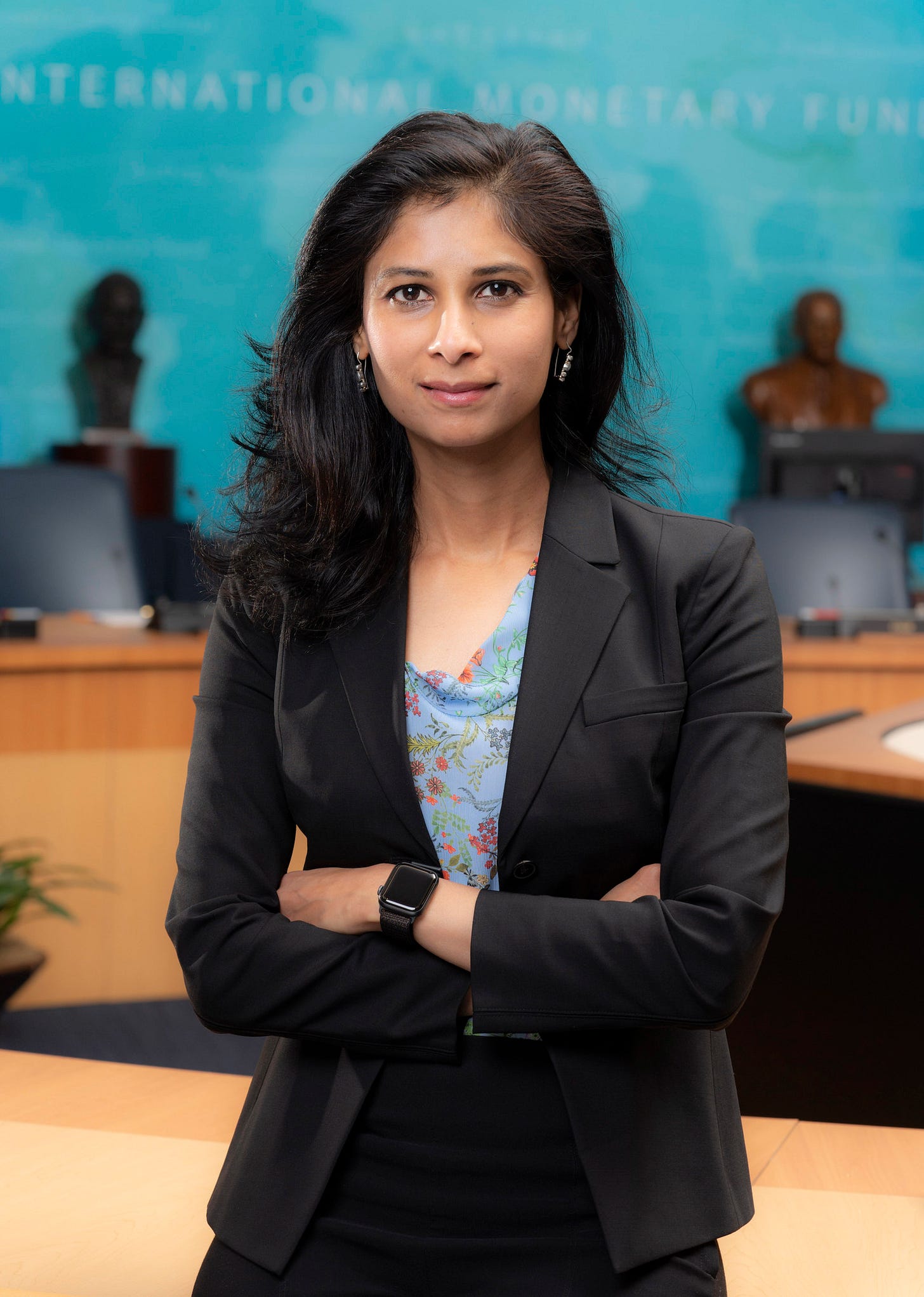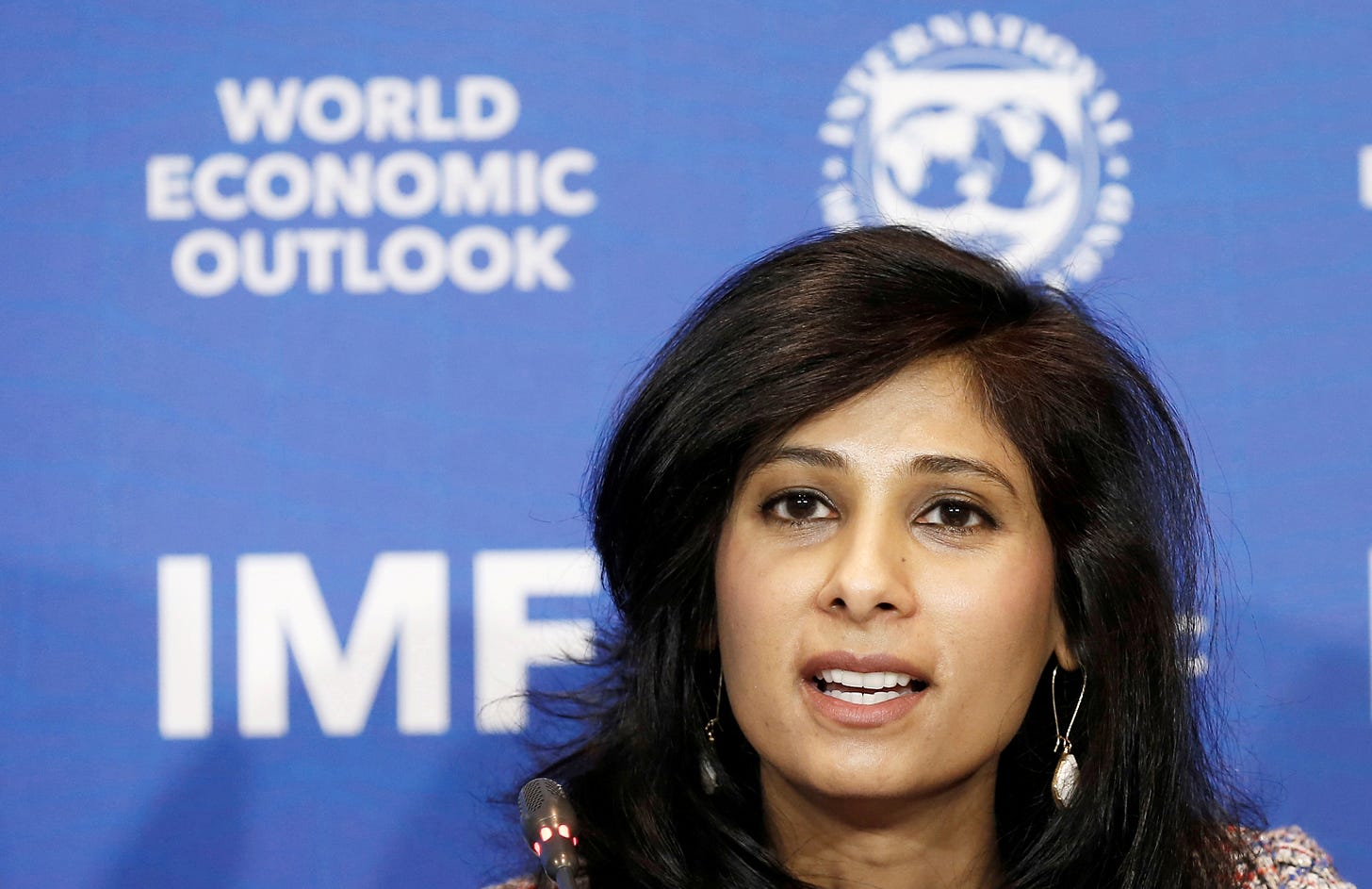"Unveiling the Realities of AI: Addressing Gita Gopinath's Concerns"
Navigating the Dual Nature of AI: Balancing the Empowering Potential and Unforeseen Consequences of the "Artificial Hand" Through a Pragmatic Approach.
In her thought-provoking speech commemorating the 300th anniversary of Adam Smith's birth, at the University of Glasgow, UK, Ms Gita Gopinath, First Deputy Managing Director of IMF, highlights the power and perils of artificial intelligence (AI) through the lens of Smith's ideas. In her address of 5th June, 2023, while Gopinath raises valid concerns about the potential impact of AI on productivity, employment, and society as a whole, it is essential to delve deeper into the subject and offer a broader perspective. By examining the potential benefits and addressing the challenges of AI implementation, we can chart a path forward that harnesses the transformative capabilities of this technology while mitigating its potential risks.
While some may like to describe this as a rebuttal article, we think we are merely presenting slightly different perspectives of the issues that are bound to be increasingly discussed and debated as #ArtificalIntelligence inexorably spreads its footprint across the globe.
1. Overlooking the potential of AI: Gopinath emphasizes the negative impact of AI on employment and society, but fails to acknowledge the significant positive contributions it can make. AI has the potential to revolutionize industries, improve efficiency, and create new job opportunities that were previously unimaginable.
2. Neglecting the adaptability of the workforce: While it is true that AI may disrupt certain job roles, Gopinath underestimates the adaptability of the workforce. Throughout history, technological advancements have led to job displacement, but they have also created new avenues for employment. By focusing on retraining and upskilling programs, we can ensure that workers are prepared for the jobs of the future.
3. Underestimating the role of regulation: Gopinath argues for stringent regulations to mitigate the risks associated with AI, but fails to recognize the potential drawbacks of excessive regulation. Heavy-handed regulations can stifle innovation and hinder the development of AI technologies that could bring significant benefits to society. A balanced approach that encourages innovation while addressing ethical concerns is crucial.
4. Ignoring the importance of collaboration: Gopinath highlights the need for global regulations but overlooks the importance of collaboration between governments, academia, and the private sector. It is through collaboration that we can effectively address the challenges posed by AI, share best practices, and develop guidelines that strike a balance between innovation and social well-being.
5. Overemphasis on AI's influence on human civilization: While AI undoubtedly has the potential to influence human behavior, Gopinath's concerns about the disintegration of societal norms and the spread of misinformation overlook the fact that humans have agency. We are responsible for how we interact with and utilize AI technology. By fostering critical thinking and digital literacy, we can empower individuals to navigate the complexities of the AI-driven world.
6. Failure to recognize the limitations of AI: Gopinath raises concerns about AI's ability to replicate human speech and influence opinions. However, it is important to note that AI is still far from achieving true sentience. AI systems lack consciousness, emotions, and ethical reasoning, making them fundamentally different from human beings. It is our responsibility to use AI as a tool, while being aware of its limitations and potential biases.
7. Underestimating the potential for positive social impact: AI has the potential to address some of the world's most pressing challenges, such as healthcare, climate change, and poverty. By leveraging AI's capabilities in data analysis, pattern recognition, and predictive modeling, we can make significant strides in areas that were previously out of reach. Gopinath's focus on the risks of AI obscures the immense potential it holds for positive social change.
In conclusion, as we navigate the intricate landscape of AI and its implications, we must embrace cautious optimism. The potential for AI to enhance the efficiency and effectiveness of free markets, aligning with Adam Smith's vision, is undeniable. However, we cannot overlook the concerns of equity and the impact on marginalized stakeholders. It is crucial to strike a delicate balance between fostering innovation and implementing benign regulations that safeguard against the potential harms of this "magic" technology.
To achieve this delicate balance, international consensus is paramount. Technocrats, policymakers, and political executives across the globe must come together to shape a cohesive and coherent framework that promotes responsible AI deployment. This collaborative effort should focus on developing comprehensive regulations that protect individual privacy, mitigate the spread of misinformation, and address potential job displacement. By fostering a global dialogue, we can collectively address the challenges ahead and ensure that AI serves the broader interests of humanity.
In this pursuit, we must not forget the wisdom of Adam Smith himself, who recognized the importance of considering the well-being of all members of society, not just a chosen few. By applying his principles to the AI era, we can strive to create an inclusive and equitable future, where the benefits of technological advancements are shared by all. With cautious optimism, pragmatic regulations, and international collaboration, we can unleash the transformative power of AI while safeguarding the values and principles that define us as human beings.
____________________________________________________________________________
KBS Sidhu. The Author is an IAS officer of 1984 Batch of Punjab cadre, and retired from service in July 2021, as Special Chief Secretary, Punjab, after 37 years of service.
The images off the Internet. Copyright acknowledged.
He can be reached on kbs.sidhu@gmail.com or @kbssidhu1961 or https://www.facebook.com/kbs.sidhu



